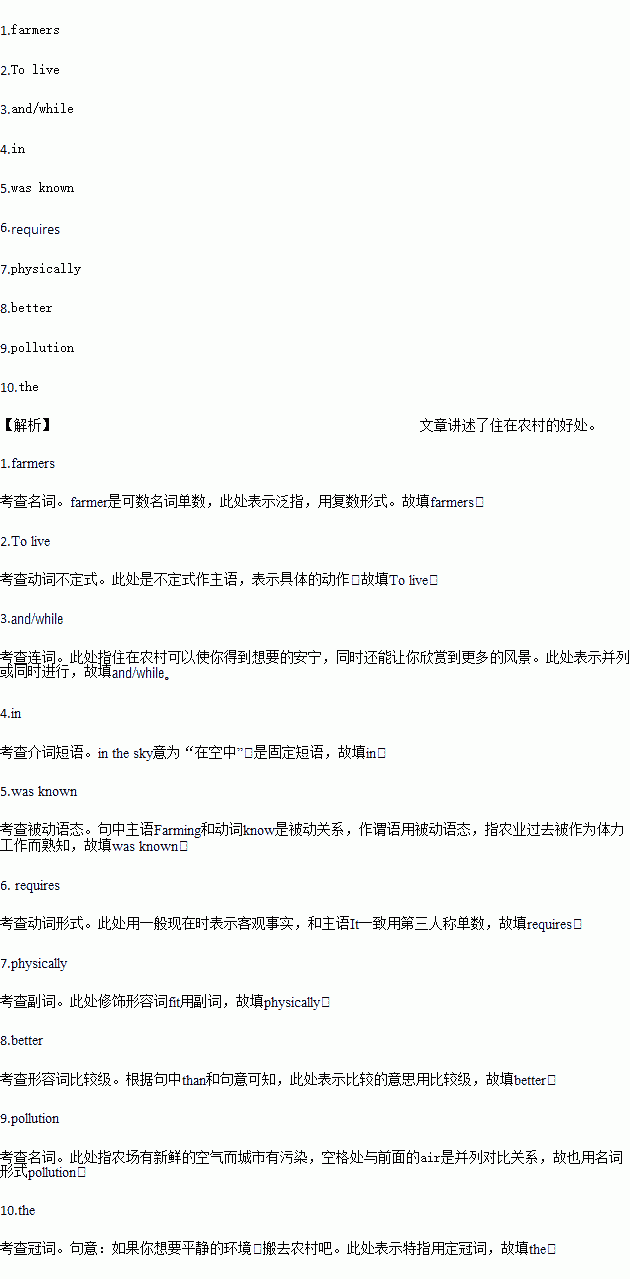题目内容
There’re so many things that 1. (farmer) can benefit from. You have a better environment if you live on the farms. 2. (live) on a farm can give you the peace of mind you’ve always wanted 3. at the same time let you appreciate nature more. You can have a better view 4. the sky. You can have fresher foods when you are on the farm. These are just some of the many beautiful things that you can find on a farm.
Farming 5. (know) to be a physical job. It 6. (require) a lot of physical work such as planting, watering, harvesting and so on. It is probably a requirement to be 7. (physical) fit to be a farmer.
Farm life is 8. (good) than city life. On the farms there is fresh air, while in the city there is 9. (pollute). The city life is just so busy and noisy. If you want to have a more peaceful environment, move to 10. countryside.


 more than 15 minutes to teach in class.“It is a big challenge to teach in such a short time the lessons which should be taught in 45 minutes,” English teacher Wang Jing said.“We have to improve methods to teach better.We must prepare some interesting topics and exercises before class so that students can discuss them.”
more than 15 minutes to teach in class.“It is a big challenge to teach in such a short time the lessons which should be taught in 45 minutes,” English teacher Wang Jing said.“We have to improve methods to teach better.We must prepare some interesting topics and exercises before class so that students can discuss them.” nger in her classroom
nger in her classroom